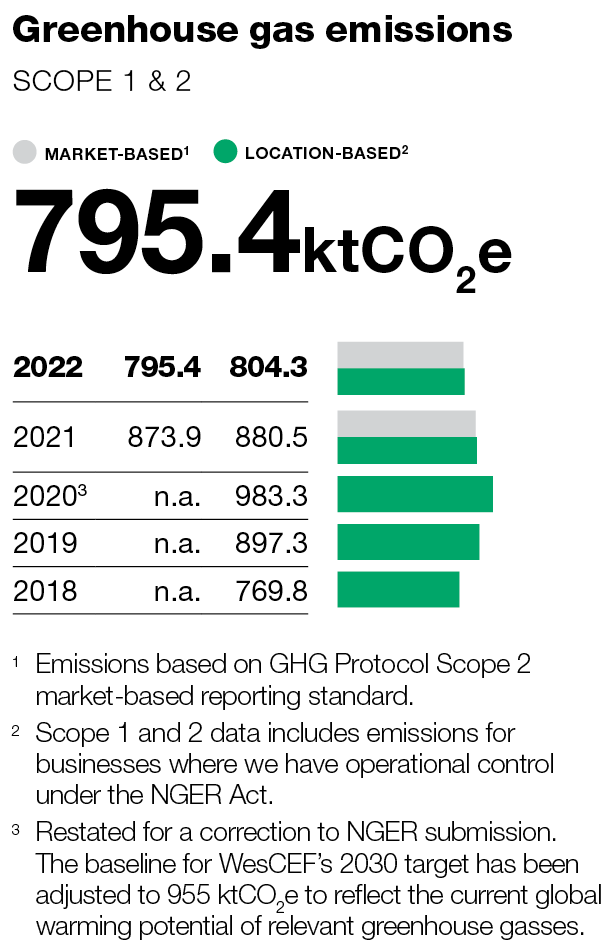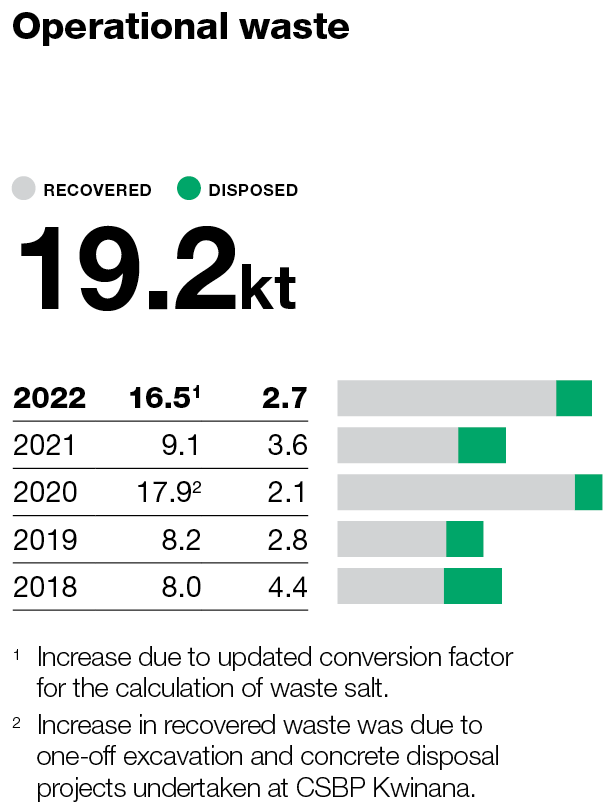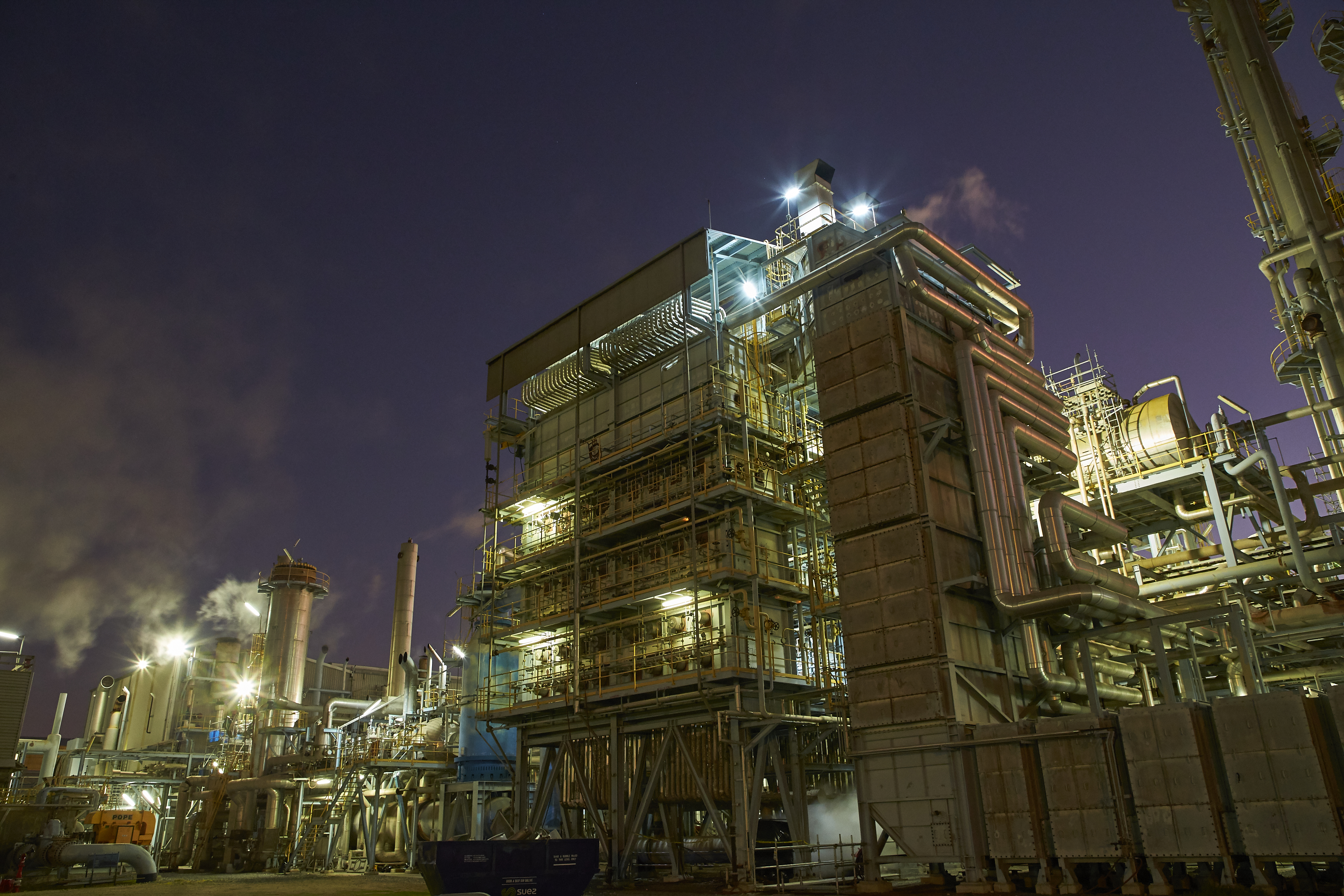
WesCEF - Environmental stewardship
Contamination at WesCEF sites has largely been the result of historic practices that complied with the accepted practices of the day. Contamination can hinder operations through either personnel exposure risks, constraining groundwater abstraction and reducing opportunities for stormwater infiltration. Most importantly, CSBP Kwinana is located adjacent to Cockburn Sound, which has significant environmental and recreational values, and is a key priority for ongoing investigations.
WesCEF continued to progress legacy waste contamination investigation activities at the CSBP Kwinana site. In the 2022 financial year, an Ecological Risk Assessment and Remediation Options Assessment was undertaken to better delineate the risk to Cockburn Sound from the Kwinana site and surrounding industry. Additionally, the assessment of groundwater remediation options was undertaken and a conceptual design was completed for a pilot trial option (planned for the 2023 financial year).
WesCEF recognises that climate change presents both risks and opportunities to its businesses, and that each business has a vital role to play in addressing climate change. Long-term resilience requires accelerated mitigation and adaptation strategies. Supporting accelerated mitigation, this year WesCEF introduced a new 2050 net zero Scope 1 and 2 emissions target and an interim target to reduce Scope 1 and 2 emissions by 30 per cent by 2030, relative to a 2020 baseline. Since specialist abatement catalyst technology was introduced in its nitric acid ammonium nitrate plants in 2012, WesCEF's Scope 1 and 2 emissions have fallen by approximately 40 per cent.
WesCEF has also committed to additional greenhouse reporting transparency and this year its Scope 3 emissions reporting was expanded to cover all material Scope 3 categories. This will enable WesCEF to better understand its complete carbon footprint and implement reduction strategies in the future.
WesCEF reduced Scope 1 and 2 market-based emissions by 9.0 per cent in the 2022 financial year, with the scheduled ammonia plant shutdown accounting for around one-third of this reduction.
Several emissions reduction opportunities are currently being actively progressed by WesCEF. The business commenced developing a Scope 3 roadmap and targets relating to value chain emissions. Work will also continue on developing a product level emissions reporting framework to support the organisation’s goals around emissions transparency.



